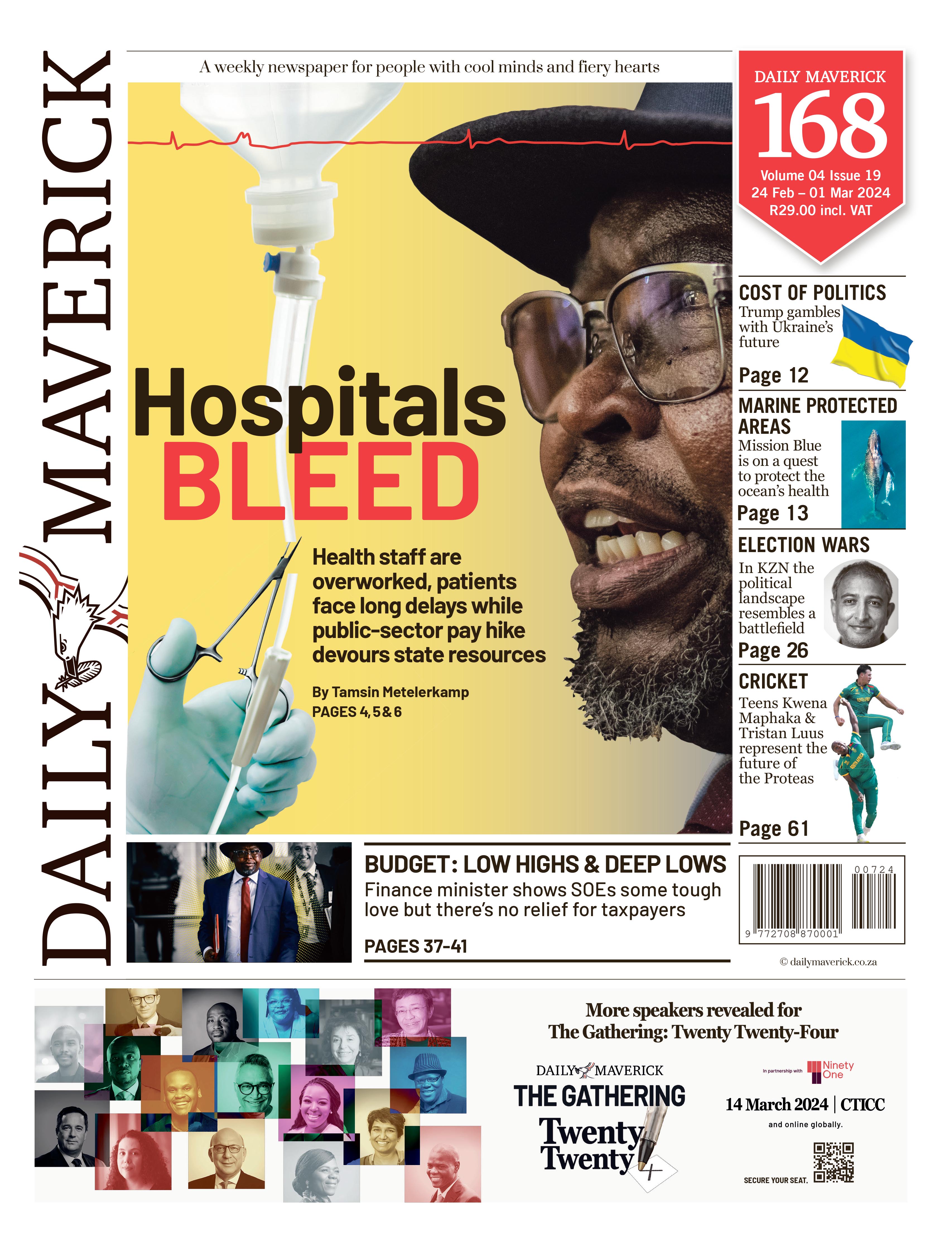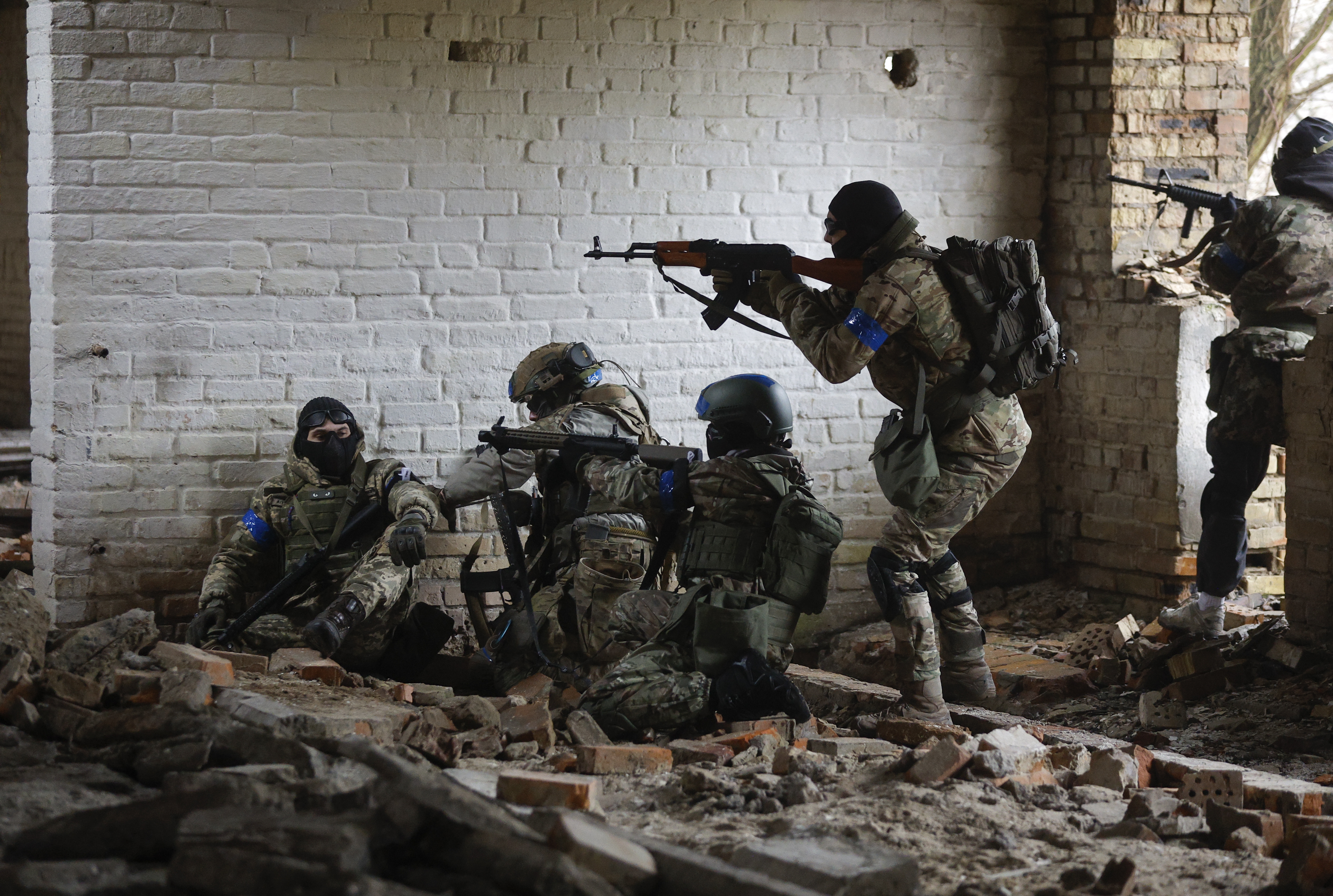The second anniversary of Russia’s invasion has rolled around (24 February), and it has become sadly all too clear that past and would-be future US president Donald Trump holds Ukraine’s faltering fortunes in his unreliable hands.
It has not been a good time lately for Ukraine. Last Sunday Russian forces captured the key city of Avdiivka in the eastern Donetsk region after a bloody four-month campaign. It was a Pyrrhic victory for Russia, which lost about 16,000 soldiers in the battle, according to Western sources.
But Ukraine also lost many and the fall of Avdiivka might have opened the path to further territorial gains for Moscow. Many Ukrainian soldiers were also captured in the hasty retreat from the city.
The cost of politics
The fall of Avdiivka can largely be blamed on Trump and the spineless Republican Congress representatives whom he browbeat into opposing a deal with President Joe Biden’s administration, which would have tightened up illegal immigration across America’s southern border in exchange for Republicans supporting $61-billion of aid to Ukraine. Trump evidently needed to keep the illegal immigration issue alive for his presidential campaign against Biden.
For lack of US support, the Ukrainians were simply outgunned in Avdiivka. They just didn’t have enough ammunition to counter the massive and relentless artillery bombardment from Russia. One Ukrainian officer told Time magazine Russia had fired 11 times more artillery shells than Ukraine.
It now seems unlikely that the US aid package will be passed before the US elections in November. And if Trump beats Biden then, the future will be even grimmer for Ukraine as Trump, an admirer of Russian President Vladimir Putin, could very well abandon Ukraine, and weaken Nato.
To its credit, the European Union recently adopted its own $54-billion aid package for Ukraine. But European officials acknowledge that they cannot save Ukraine alone. They need US support.
Read more in Daily Maverick: Once-bitten Europe is better prepared for Trump’s Nato tirades
It seems extraordinary that Nato, which commands a combined GDP of more than $32-trillion, cannot muster the weapons to outgun Russia with an economy less than one-tenth the size, at about $2.3-trillion. According to calculations by the Estonian Defense Ministry, quoted by Foreign Policy, Western countries would need to invest 0.25% of their GDP in military assistance to Ukraine to enable the country to continue defending itself in 2024 and prepare for a counteroffensive in 2025.
The immediate problem, one is told, is that Nato countries lack the weapons production capacity. It doesn’t help that South Africa’s ally Iran and North Korea are meanwhile both supplying Russia with artillery and missiles.
But Nato’s 32 member states could, if they chose, summon the political will to put their economies on a war footing. This war is surely worth that effort since it is about preserving democracy and a rules-based international order against dictatorship.
 Ukrainian President Volodymyr Zelensky awards a serviceman during a visit to the battalion command post of the 14th separate mechanised brigade – named after Prince Roman the Great – near the frontline in the Kupyansk area of Ukraine on 19 February 2024. (Photo EPA-EFE / Presidential Press Service)
Ukrainian President Volodymyr Zelensky awards a serviceman during a visit to the battalion command post of the 14th separate mechanised brigade – named after Prince Roman the Great – near the frontline in the Kupyansk area of Ukraine on 19 February 2024. (Photo EPA-EFE / Presidential Press Service)
Withstanding Russia
Ultimately, it is the political will and nerve that is lacking in the West. And perhaps the gravest consequence of the fall of Avdiivka is that, perversely, it might persuade the West that Ukraine is not worth supporting. That would hand Putin the victory by politics he has so far failed to gain by warfare. Or at least an indefinitely frozen conflict – a perpetual stalemate – which would also suit him.
Such outcomes would be tragic for a nation that for two years has withstood the might of Russia by courage, the inspiring leadership of President Volodymyr Zelensky – and the help of Western weapons.
Read more in Daily Maverick: War in Ukraine
Almost everyone, including apparently Putin himself, expected Russia to simply walk over the Ukrainian forces within days of the invasion on 24 February 2022. Three weeks after that, Russia’s ambassador to South Africa, Ilya Rogachev, told a seminar that Russian forces were being welcomed by Ukrainians as their liberators from their own “neo-Nazi” government. The reality was rather different. The Russian “liberators” hit a wall of steely resolve. Often armed only with the handheld Javelin missiles the US had given them, the Ukrainian soldiers stopped the Russian tank convoys in the northern parts of Kyiv and drove them back.
Still, Russia had managed to occupy large swatches of the eastern Donbas region and southeastern Ukraine.
But during its first major counteroffensive in 2022 Ukraine recovered about half of its lost territory, mainly around Kharkiv in the east as well as Kherson in the south.
These victories inspired hope in Ukrainians and their allies, prompting the West to keep supplying weapons. But they were always too few and too late.
So, when Ukraine launched its second major counteroffensive in mid-2023 it lacked the weapons to penetrate Russia’s defences. The fight had become a World War 1 stalemate, stated Ukraine’s military chief, General Valerii Zaluzhnyi, irritating Zelensky, who fired him several months later.
The counteroffensive was not all in vain. Helped by Western missiles, Ukraine drove back Russian ships and aircraft from its Black Sea ports, breaking Moscow’s blockade and enabling Ukraine to resume exports of grain and other supplies to sustain its battered economy, and to feed the world. But clearly that is not enough.
Hope for peace
What hope for a negotiated peace? There have been several attempts. In June 2023 President Cyril Ramaphosa led a delegation of seven African leaders to Kyiv to meet Zelensky and to Moscow to meet Putin, presenting a peace plan.
But the Africans were vague about the essential point: Russia must withdraw from Ukraine. Even their call for respect for the territorial integrity of both Russia and Ukraine prompted Putin to suggest that the Africans needed to take account of the “new realities” of Russia’s annexation of Ukrainian territory.
That is completely unacceptable to Ukraine, which understandably wants back the 20% of its country Russia has stolen.
Zelensky’s own “peace formula” talks, in which South Africa is now participating, do not include Russia for the same reason.
This all comes back to the West, as Anders Fogh Rasmussen, founder of the Alliance of Democracies and former secretary-general of Nato, points out in Foreign Policy. He notes that an opinion is growing in the West that Zelensky should settle for a peace deal, which entails giving up the Donbas and the southeast – not to mention Crimea.
Read more in Daily Maverick: To Russia with Love and Hopeless Devotion, from Fikile Mbalula and the ANC
Calling Putin’s bluff requires instead offering Ukraine Nato membership and also putting Nato economies on a war footing to provide the country with the weapons it needs to defeat Russia, he says.
“After two years of war, a dangerous narrative has emerged in Western debates: the conflict is at a stalemate, and Ukraine is close to the limits of what it can achieve on the battlefield. This assessment is wrong – the means to deliver a Ukrainian victory remain firmly in the West’s hands. But leaders in Europe and the United States must show the political courage to make it happen.” DM
This story first appeared in our weekly Daily Maverick 168 newspaper, which is available countrywide for R29.





 A handout picture made available by the Presidential Press Service shows President of Ukraine Volodymyr Zelensky (L) awarding a serviceman during his visit to the battalion command post of the 14th separate mechanized brigade named after Prince Roman the Great, near a frontline in the Kupyansk area, Ukraine, 19 February 2024 amid the Russian invasion. Russian troops entered Ukrainian territory on 24 February 2022, starting a conflict that has provoked destruction and a humanitarian crisis. EPA-EFE/PRESIDENTIAL PRESS SERVICE HANDOUT HANDOUT HANDOUT EDITORIAL USE ONLY/NO SALES HANDOUT EDITORIAL USE ONLY/NO SALES
A handout picture made available by the Presidential Press Service shows President of Ukraine Volodymyr Zelensky (L) awarding a serviceman during his visit to the battalion command post of the 14th separate mechanized brigade named after Prince Roman the Great, near a frontline in the Kupyansk area, Ukraine, 19 February 2024 amid the Russian invasion. Russian troops entered Ukrainian territory on 24 February 2022, starting a conflict that has provoked destruction and a humanitarian crisis. EPA-EFE/PRESIDENTIAL PRESS SERVICE HANDOUT HANDOUT HANDOUT EDITORIAL USE ONLY/NO SALES HANDOUT EDITORIAL USE ONLY/NO SALES 